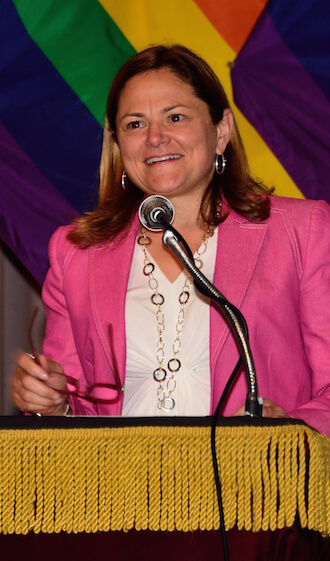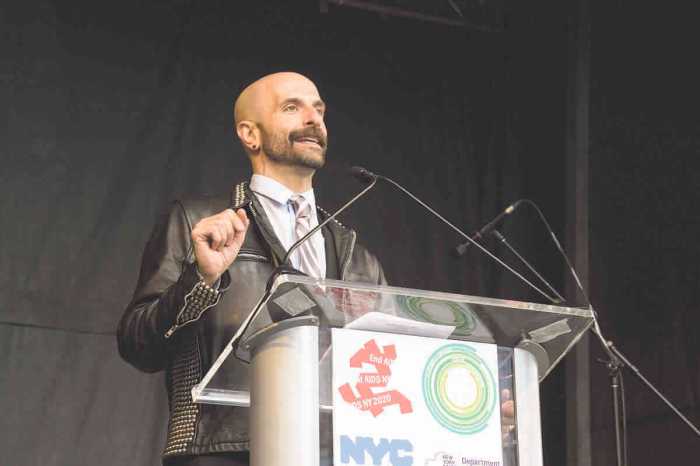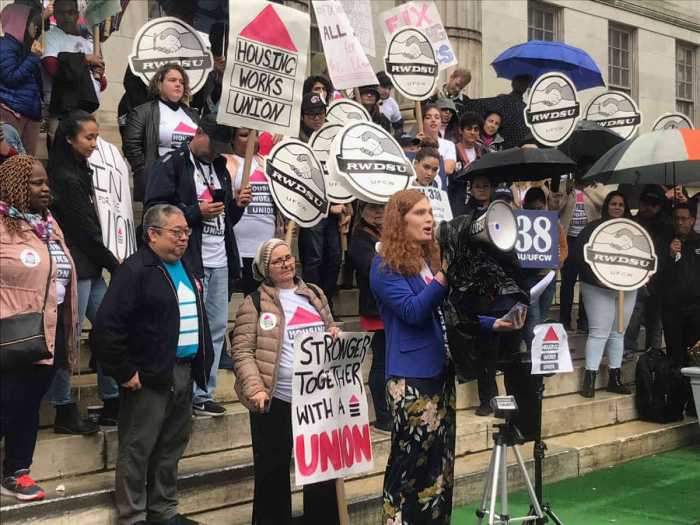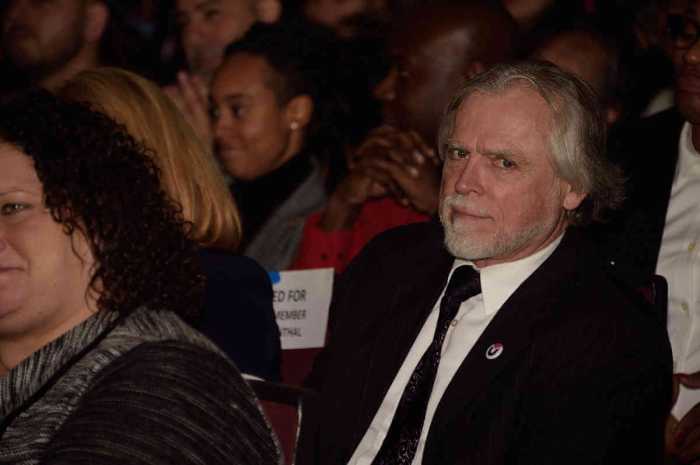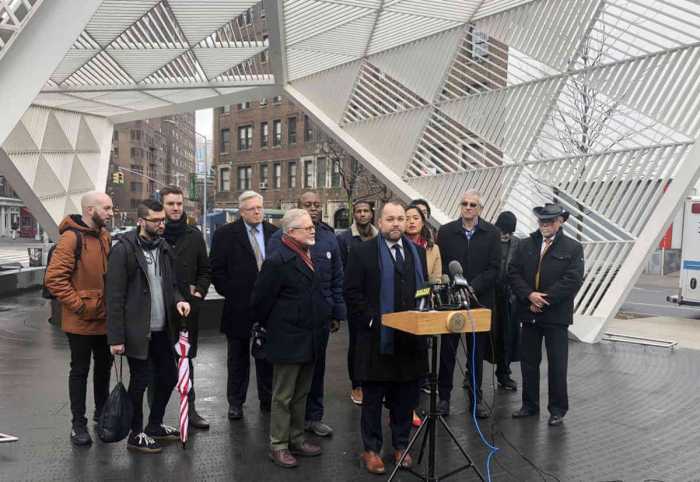Moving on the Plan to End AIDS, the City Council will spend $6.6 million to fund pre-exposure and post-exposure prophylaxis programs and efforts to aid people with HIV in staying on anti-HIV drugs so they remain non-infectious.
“This initiative will help continue to provide programs and education to raise awareness of this devastating epidemic,” City Council Speaker Melissa Mark-Viverito said in a joint November 23 statement with Corey Johnson, the openly gay and HIV-positive Council member who represents Chelsea. “It is critically important that all New Yorkers do their part to fight the spread of HIV/ AIDS. The more we take advantage of these resources, the closer we’ll get to ending the epidemic.”
The plan, which was first proposed by leading AIDS groups in 2014, relies largely on using anti-HIV drugs in HIV-positive and HIV-negative people to reduce the number of new HIV infections in New York State from the current roughly 3,000 a year to 750 annually by 2020.
Spending focuses on drug interventions for prevention as well as medication adherence for those living with HIV
Pre-exposure prophylaxis (PrEP) uses anti-HIV drugs in HIV-negative people to keep them uninfected. Post-exposure prophylaxis (PEP) uses the same drugs in someone with a recent exposure to HIV to keep them uninfected. So-called treatment as prevention (TasP) uses anti-HIV drugs in HIV-positive people to keep them healthy and reduce the amount of virus in their bodies so they are no longer infectious. All three drug regimens are highly effective when used correctly
“New York has a plan to end the HIV/ AIDS epidemic and now we’ve got to fund it,” said Johnson, who chairs the Council’s Committee on Health, in the statement. “Every dollar of the Council’s $6.6 million contribution will bring us closer to achieving this goal.”
More than 90 percent of new HIV infections in New York State are in the city, so the plan will only succeed with the city’s funding and participation.
The Council money funds citywide PrEP programs run by the Lesbian, Gay, Bisexual & Transgender Community Center and ACRIA, an AIDS group, and TasP efforts at Housing Works, which has been very successful in getting its clients into treatment and virally suppressed, and at Amida Care, a special needs health plan.
The Council dollars will also fund PEP education and training. While little known, PEP is more than 20 years old and is currently used primarily by healthcare professionals who have an exposure to HIV, typically through an accidental needle stick. The money also funds HIV testing and efforts to link those who test positive to care so they can begin treatment.
The $6.6 million comes from $2.7 million in City Council HIV dollars that have been repurposed and $3.9 million that was in the budget for the current fiscal year. The de Blasio administration contributed an additional $1.9 million in the current fiscal year.
The Cuomo administration spent $10 million for the plan, an amount that was well below what advocates were seeking. The budget for the state fiscal year, which began on April 1, spent $5 million for a program to help PrEP users pay for the drug regimen and another $5 million to fund various other components of the program.
According to a June email sent from David Lara, a deputy director in the state Division of the Budget, to Alphonso David, a senior member of the Cuomo administration, $7.5 million of the $10 million was funded by Medicaid and $2.5 million was new spending from the general fund. The email was among 127 pages of records that Gay City News obtained from the City Council in response to an open records request.
Among the roughly two dozen community groups funded by the Council are GMHC, Harlem United, the Ali Forney Center, the Hetrick-Martin Institute, the Latino Commission on AIDS, the Apicha Community Health Center, the AIDS Center of Queens County, and BOOM!Health in the Bronx. The money also pays for programs at major city hospitals, including a PrEP pilot program for adolescents at the Montefiore Medical Center in the Bronx.
“I am thrilled by the leadership shown by the New York City Council, creating a new initiative to fund Ending the AIDS Epidemic efforts in New York City,” Charles King, the chief executive at Housing Works, said in the statement. “Both Speaker Melissa Mark-Viverito and Health Committee Chair Corey Johnson deserve credit for not only carefully tracking the recommendations made by the Ending the Epidemic Taskforce in its Blue Print, but also funding the priorities developed by the community.”
King is credited, along with Mark Harrington, the head of the Treatment Action Group, with developing the Plan to End AIDS. King has negotiated much of the funding and details of the plan with the city and state.
The statement also included laudatory quotes from another seven groups.

